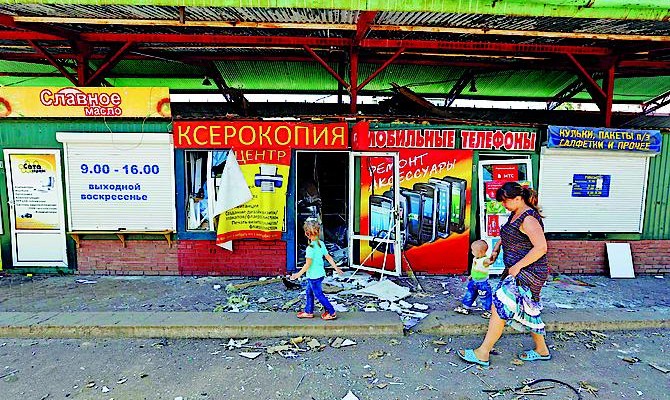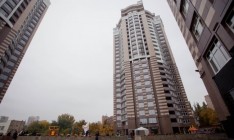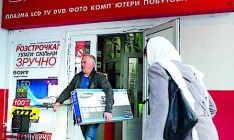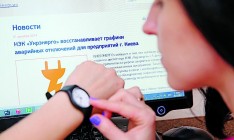Economy
signalsUkrainians are rejecting purchases as much as they can

Retail sales in Ukraine have hit a record low in the first half of the year. In January-June, the growth rates of goods turnover amounted to only 0.8% compared with the same period of 2013, when the growth dynamics was at 11.1%. In money terms, the retail goods turnover amounted to UAH 417.5 bn in the first half of the year, according to the State Statistics Service. Meanwhile, the sales of retail trade companies and restaurants dropped 2.1% against H1, 2013 totaling UAH 202.1 bn.
Shopping cancelled
Taking into account the situation in Donbas, the slowdown in trade growth rates in the Donetsk and Luhansk oblasts was fully expected. The final statistics for the period were quite depressing: the decrease in trade in these regions was 2.5% and 7.7% respectively. Strange as it may seem, Kyiv (without taking into account the oblast) also registered negative indicators – minus 4.6%. The capital, however, as earlier, showed the highest goods turnover in money terms – UAH 55.3 bn. At that, residents of the Kyiv oblast, compared with the last year, conversely, spent more than the rest of Ukrainians with the goods turnover in retail increasing by 7.6% in the region. Relatively high growth rates were also registered in the Cherkasy (7.0%), Zhytomyr (5.7%) and Poltava (5.6%) oblasts.
Economic Programs Director at the Razumkov Center Vasyl Yurchyshyn believes the fact that growth rates in retail were preserved, even though they were insignificant, is nevertheless a positive sign. “The deduction, which we currently have in average salaries, does not fully correspond to the real standard of living in the country. After all, inflation grew, and therefore, purchasing power declined. Basically, people have to save on everything they can, but mainly on durable goods,” says the expert.
As a reminder, in June the cost of consumer goods increased 12% compared with June 2013. In addition to that, Yurchyshyn believes that devaluation played its role in the drop in retail sales. According to the NBU, the hryvnia rate fell on the interbank exchange by 45% on average in the period from the beginning of January till the end of June to UAH 11.82/US $1. Meanwhile, without an increase in prices of goods retail trade could have shown negative dynamics, instead of weak growth in monetary terms.
Mood swing
Despite the general slowdown in retail sales in the country in the first half of the year, the consumer confidence of Ukrainians slightly improved in June, according to a survey published by GfK Ukraine. The consumer confidence index in June was the highest since January 2014, when the country was still mired in the political crisis.
The index, however, remains still rather low compared with the previous years. In truth, the moods of citizens have not really improved. As the survey indicates, consumer confidence improved in all regions of the country with the exception of those in the south and the east. There, people are more pessimistic. “The gradual stabilization of the political situation after the inauguration of the new president and the waning threat of a full-scale war contributed to the improvement of economic expectations of citizens. At the same time, the weak dynamics of people’s current well-being is restraining the growth of domestic demand,” say analysts at GfK Ukraine.
The slowdown in retail trade growth rates became visible in the second half of 2013. Experts asked by Capital predicted a month earlier that the dynamics of growth of retail turnover would begin to slow down. The growth rates of retail turnover year-on-year will be fading away, possibly to zero, says Head of the Analytical Department at Investment Capital Ukraine (ICU) Oleksandr Valchyshen. Meanwhile, it is possible that if the military conflict in the eastern regions continues and the current state of the economy continues, retail sales will go “into the red”. Even a further rise in prices of goods will not save the statistics. “In the context of negative expectations, consumers will continue to limit their expenses, particularly since they have already been in situations when ATMs did not function and wages and pensions were delayed,” Yurchyshyn pointed out.
Moreover, experts doubt that the Cabinet of Ministers will resort to artificial stimulation of retail sales. Senior Analyst at the International Center for Policy Studies Oleksandr Zholud says the previous government, having faced the economic recession in the second half of 2012, manually stimulated the growth of retail turnover by restraining the hryvnia rate. “As we can see, this did not help overcome the recession. However, there is no doubt that the recession would have been deeper had the growth of retail sales been lower,” notes the analyst.






 of the agreement of syndication with Financial Times Limited are strictly prohibited. Use of materials which refers to France-Presse, Reuters, Interfax-Ukraine, Ukrainian News, UNIAN agencies is strictly prohibited. Materials marked
of the agreement of syndication with Financial Times Limited are strictly prohibited. Use of materials which refers to France-Presse, Reuters, Interfax-Ukraine, Ukrainian News, UNIAN agencies is strictly prohibited. Materials marked  are published as advertisements.
are published as advertisements.